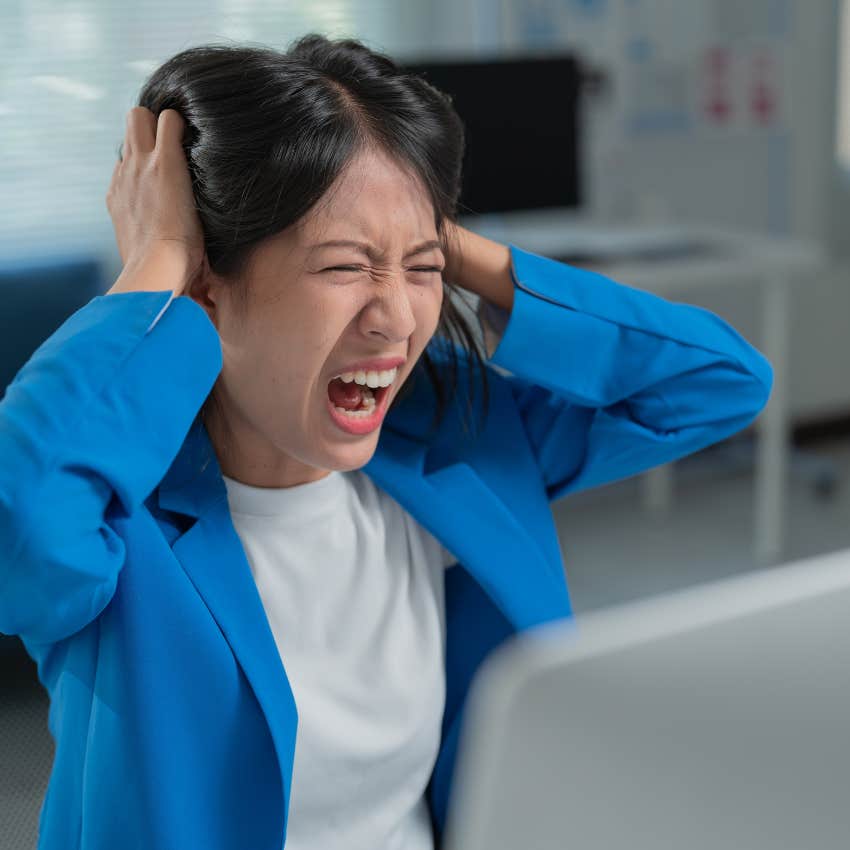Ever catch yourself thinking, “I just can’t relax. I’m stressed all the time. I can’t stand this feeling”? Yeah, me too—and trust me, you’re not alone in this nonstop hustle culture that treats exhaustion like a badge of honor. But hey, here’s a twist that might just blow your mind: Rest isn’t the enemy of productivity—it’s its secret weapon. Ironically, while Mercury’s retrograde this week might have you tangled in miscommunication and chaos, it’s also a cosmic nudge reminding us to pause and reboot. So, if you’ve ever felt utterly baffled by the concept of relaxing—or if telling you to “just chill” makes you picture a potassium-salt truck reversing over your sanity—maybe it’s time to rethink what “taking a break” really means. Ready to spot the signs that you seriously need to step back and actually learn to relax? Let’s dig in. LEARN MORE
I hear this all the time. “I just can’t relax. I’m stressed all the time. I can’t stand this feeling.” You can learn how to relax. Here are some reasons why that might be, and how to begin to start thinking about relaxing.
Recognizing when you need to step back and take a break from, well, everything takes genuine self-awareness and courage, especially in a culture that celebrates pushing through exhaustion. The most successful, creative, and resilient people understand that rest isn’t the opposite of productivity, it’s an essential part of it.
Advertisement
Ummm, if it were that easy, wouldn’t you already be doing it? Telling someone to relax or calm down is like telling a 2-year-old to stop crying. It only makes everything worse. Take the cue that you are coming across as uptight. You can respond in any way you’d like, but you can also throw back a quip, “Thanks for the feedback, I will figure out the best thing for me to do.”
Sometimes, your assertiveness and hustle are necessary. One person’s feedback or direction to relax may be coming from their own insecurities, so take it with a grain of salt as well.
Advertisement
Research has shown that this is because it invalidates your feelings and dismisses the genuine stress you are experiencing. The statement interferes with your goal of being understood or having your stress acknowledged.
 Suwatchai Wongaong / Shutterstock
Suwatchai Wongaong / Shutterstock
Advertisement
Wall art with “Dream, Believe, Achieve” is cute, but it’s a subtle way to drive home the bigger message about your value: You are only valuable and lovable if you are productive, efficient, busy, achieving new and better things, etc. You can never. Stop. Doing. You can never rest or relax. Someone will catch you.
We need to reality check the messages and expectations that are telling us we’re lazy if we’re not doing something. People will judge us if we’re not working on the next big thing. It’s really no one else’s business how busy you are, what you’re working on, how much you make, and how much time you work.
You get to decide what your work (whether that’s office work, working from home, working to manage a household and children) means to you and the role it plays in your life. Is it everything? If not, why is it usurping everyone else’s space in your life, including space for your own well-being?
Advertisement
The “I’m so busy” response to “How are you?” is getting a little old. We’re all so busy because it’s expected and totally weird to say, “Oh, I’m great, just came from a nap and a nice lunch. You?”
Why do we need to be in a frenzy all the time? It’s a distraction from other things that can be particularly distressing, such as relationship problems, medical issues, financial stress, etc.
One can always justify doing another task for the sake of “work” and success. What is your busy life distracting you from? What would it be like to begin to let that go? It will take a while for your mind to slow down and catch up with itself.
Unlike high job involvement or passion, work addiction is a compulsive and uncontrollable need to work that interferes with well-being. According to a 2024 study, ignoring the need for a break intensifies the cycle of addiction, burnout, and negative health effects.
Advertisement
 Surat123 / Shutterstock
Surat123 / Shutterstock
I know this sounds silly. I can just sit down on the couch, right? Well, if you sit on your couch and start scrolling through Instagram, it’s not very relaxing. Your brain is still being stimulated with everyone else’s busy-ness, success, and seemingly perfect lives.
I’m not going to tell you to “just go to the spa.” Yes, that’s some good macro self-care, but it doesn’t work for everyone. For some, a massage might be blissful, and for others, it may be torture to have a stranger’s hands all over your body.
Advertisement
Does it mean I sit still and don’t talk to anyone? Does it mean I’m sleeping? Does it mean that I can’t be actively relaxing? What should I feel like (because overly busy overachievers need to know the right way to relax)?
Well, Webster has several definitions for the word, but here are the top ones for the type we’re referring to: to become less intense or severe, to become inactive and lengthen, to cast off social restraint, nervous tension, or anxiety, to seek rest or recreation.
I’d like to focus on the outcome of relaxing, which I believe should be restorative. For some, the spa is restorative. For others, reading a good book. A nap. A yoga class. A talk with a good friend.
Advertisement
It doesn’t matter what the vehicle is as long as you get to the destination. We all need to restore our minds and bodies to our relationships, our physical and emotional health, our work quality and productivity, and oh yeah, overall quality of life.
When your brain is overworked, it can struggle to find a state of rest, leading to a feeling of being unable to switch off or a sense that stillness feels unsafe. Taking a break is crucial for your brain to reset and recover. A break is a way to de-stress and return to your daily activities with more energy and clarity, one study found.
Besides the sun, what thing do you know of that doesn’t require energy from something else to run? You are not a machine. You need to stop to recharge, restore, and reconnect with yourself.
Advertisement
So…how exactly? Mindfulness is the buzzword of late, and it does have a lot of merit. I personally hate the word but endorse the idea. It merely means to pay attention: to yourself, your thoughts, and your life. When you’re too busy, you’re not paying attention.
Anya Surnitsky is a licensed clinical social worker and a Certified Daring Way™ Facilitator. She has been featured in PsychCentral, the Unapologetically Sensitive podcast, TherapyDen, and more.
Auto Amazon Links: No products found.

This will close in 0 seconds
This will close in 0 seconds